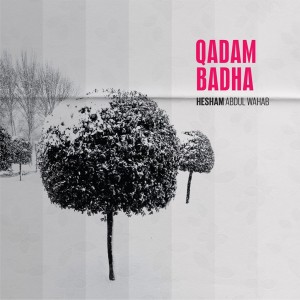 You can listen to song samples and read full credits at the end of the review. You can buy the album on itunes.
You can listen to song samples and read full credits at the end of the review. You can buy the album on itunes.
For an album that is supposed to mark the debut of singer Hesham Abdul Wahab, the song titled Qadam Badha is ironically not composed by him. It has been composed and arranged by British singer-songwriter Sami Yusuf (whose Andante Records have brought out this album). As goes its title, the song has a tune and arrangement that take that anthemic, inspirational route and is quite effective, albeit in a familiar way. It is the Hindi-Malayalam lyrics that don’t work that well, even with Hesham’s singing. Rest of the album is composed by Hesham. One of the things Hesham got noticed most for during his stint at Idea Star Singer was his love for A R Rahman. And that fanboy-ness shows up as an influence off and on in this album. Aa Mil Yaar is one such song – Hesham giving Baba Bulleh Shah’s lines a minimal, prayer-like treatment and singing it most soulfully. It gets even better when the female backing vocals join in halfway through. Bulleh Shah’s oft-covered Bulleya Ki Jaana also gets a similar arrangement. Decently done, though I am more used to hearing a lot more sounds around these lines in its past covers. In fact I liked the song better towards the last 50 odd seconds where it goes into a trance-y build-up with the chants and everything. Wish that section were longer. Not much experimentation is tried on another Bulleh Shah favourite, Mast Qalandar (which is presented as a tribute to Nusrat Fateh Ali Khan). Competently arranged again, but given that it follows the regular qawwali format (with a filmy garnishing), nothing much sticks out, and I am most likely to go back to listening to some other cover of the song by one of the veterans. Good singing by Hesham and his backing vocalists nevertheless, and in the arrangement, Berny’s (of the composer duo Berny Ignatius) work on the bulbul tarang stands out. The final Bulleh Shah song Ghoonghat has a nice tune that sits well on the tabla-led arrangement (Sanu S Jeevan on tabla).
The other traditional poem that Hesham picks up is Amir Khusro’s Zehal-e-Miskeen, giving it a trippy mod makeover. The entry of Francis Xavier’s violins in the second half raises the song a notch higher. The qawwali based arrangement and tune of Khudayave carry a very Rahmanesque flavour about them, even as the composer adds his own stuff to the track, leading of course with the very competent rendition by him and his band of backing vocalists. The English-Hindi-Urdu combination in Al Malik’s lyrics does not go down well always, though the pop-ish leaning of the song does mitigate that to an extent. Decent song overall, nothing more. Where Hesham scores a true winner is in Sangeet Mera. The tune has a distinct South Indian touch to it (did I sense abheri raga?) and the singer goes acappella with his arrangement here, pulling it off beautifully. The layering is intricate, the singing exceptional. Barring the occasional issues with the Hindi diction (more prominent in this song, I felt), Meri Maa is another beautifully done song. In keeping with the motherly theme, the track has a poignant quality, and the composer quite aptly chooses Suhail Yusuf Khan (of Advaita) with his sarangi for accompaniment. Even Sandeep Sequiera chips in well with the classical bits on his guitar. The lullaby-ish structure (the ever-effective seven beat cycle) works very nicely, and the tune keeps flitting between ragas (I thought I heard kaapi and charukesi), and is handled well. Taking a break from the sufi theme is the final song Dil Hai Tera that starts with seemingly Sanskrit chants. This song too has a marked South Indian touch in its tune. Even the instrumentation features naadaswaram (Gopi) and mridangam (Kammath) among other things. But aside of these intriguing aspects, the song is rather average.
Qadam Badha. Competent debut from Hesham Abdul Wahab as composer, with ample help from himself as a singer!
Top Recos: Sangeet Mera, Meri Maa, Zehal-e-Miskeen, Khudayave
Complete credits
1) Al Malik
English words written by Shiyas Abdul Wahab
Hindi words written by Faez Choudhary
2) Qadam Badha*
Malayalam words written by Rafeeque Ahammed
Hindi words written by Faez Choudhary
Composed and Arranged by Sami Yusuf
3) A Mil Yaar
Poem by Late Bulleh Shah
4) Bulleya Ki Jaana
Poem by Late Bulleh Shah
5) Dil Hai Tera
Hindi Words written by Faez Choudhary
English Words written and performed by Shiyas Abdul Wahab
6) Ghonghat
Poem by Late Bulleh Shah
7) Khudayave
Written by Faez Choudhary
8) Mast Qalandar
Traditional Composition
Tribute to Late Nusrat Fateh Ali Khan
Poem by Late Bulleh Shah
9) Meri Ma
Written by Faez Choudhary
10) Sangeeth Mera
Written by Aekata Warrier
11) Zehal E Miskeen
Poem by Late Amir Khusro
All Songs Composed, Arranged and Peformed by Hesham Abdul Wahab
Produced by Sami Yusuf
Sarangi – Suhail Yusuf Khan (Advaita)
Strings – Francis Xavier (Cochin Strings)
Guitars – Sandeep Sequeira (Palayan), Romel Abella
Bass – Jossie Peter
Mridangam – Kammath
Nadaswaram – Gopi
Tabla and Dholak – Sanu, Dean, Baiju Balakrishnan
Harmonium and Bulbul – Berny Ignatius
Additional Vocals – Rinu Razak, Rakesh Kesavan, Anab Abbas, Anoop Menon,
Mithun, Arun Naik, Sandeep Sequeira, Shiyas Abdul Wahab and Nithin Raj
Recording Studios – Andante Studios, Plug’n’Play Studios, NHQ Studios,
Freddy’s AVG Studios, Chetana Sound Studios, Devadharu Studios and
Livewidmusic Studios
Recording Engineers – Vishnu Raj, Anindo Bose (Advaita), Jaison, Binil
Eldhose, Vijay, Kiran Lal and Nikhil
Mixing Engineers – Sayyed Hesham, Vishnu Raj
Mastering Engineers – Barron, Vishnu Raj
All Songs Mixed and Mastered at Andante Studio



